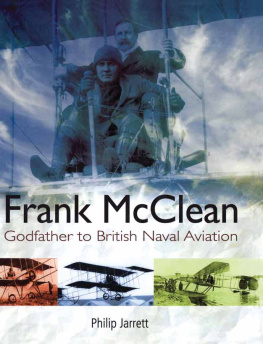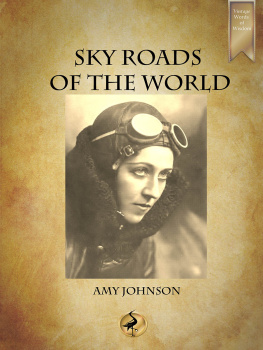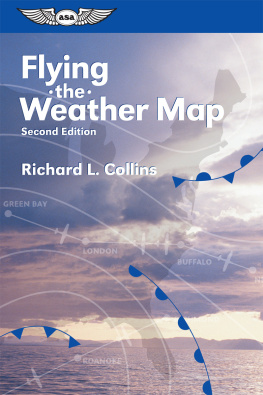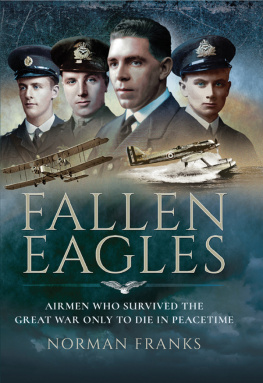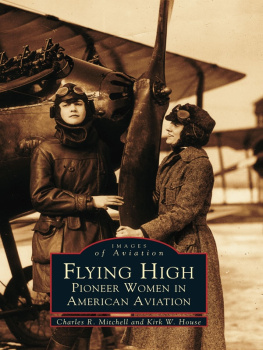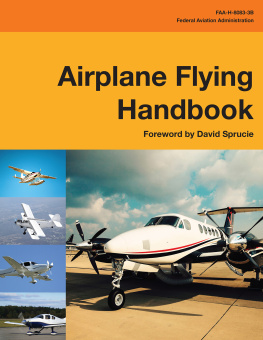F IRST T HROUGH THE C LOUDS
F IRST T HROUGH THE C LOUDS
THE A UTOBIOGRAPHY OF A B OX -K ITE P IONEER
FREDERICK WARREN MERRIAM
FOREWORD BY PHILIP JOUBERT
FIRST THROUGH THE CLOUDS
The Autobiography of a Box-Kite Pioneer
First published in 1954 by B.T. Batsford Ltd., London.
This edition published in 2018 by Air World Books,
an imprint of Pen & Sword Books Ltd,
47 Church Street, Barnsley, S. Yorkshire, S70 2AS.
Copyright Lieutenant Commander Frederick Warren Merriam AFC, FRAeS, 1954. Foreword copyright Air Chief Marshal Sir Philip Joubert KCB, CMG, DSO, 1954.
The right of Lieutenant Commander Frederick Warren Merriam AFC, FRAeS to be identified as the author of the relevant section of the work has been asserted by him in accordance with the Copyright, Designs and Patents Act 1988.
ISBN: 978-1-52672-616-2
eISBN: 978-1-52672-617-9
Mobi ISBN: 978-1-52672-618-6
All rights reserved. No part of this publication may be reproduced, stored in or introduced into a retrieval system, or transmitted, in any form, or by any means (electronic, mechanical, photocopying, recording or otherwise) without the prior written permission of the publisher. Any person who does any unauthorized act in relation to this publication may be liable to criminal prosecution and civil claims for damages.
A CIP catalogue record for this book is available from the British Library.
Pen & Sword Books Limited incorporates the imprints of Atlas, Archaeology,
Aviation, Discovery, Family History, Fiction, History, Maritime, Military, Military
Classics, Politics, Select, Transport, True Crime, Air World, Frontline Publishing,
Leo Cooper, Remember When, Seaforth Publishing, The Praetorian Press,
Wharncliffe Local History, Wharncliffe Transport, Wharncliffe True Crime and
White Owl.
For more information on our books, please email:
,
write to us at the above address, or visit:
www.pen-and-sword.co.uk
Foreword to the New Edition
By Nick Stroud, Editor, The Aviation Historian
I t is almost impossible now to imagine a world in which the sound of progress was the gentle clip-clopping of hooves rising from loitering country lanes, when the staccato rat-tat-tat of the first primitive aero-engines and the whistling of wires in wings overhead was cause for celebration or cursing. It is this bucolic idyll that provides the backdrop for Frederick Warren Merriams lyrical memoir of his early days as a pioneer flying instructor, an occupation which brought unforgettable moments of sheer exhilaration and joy, but which was also stalked by tragedy and grief.
It was reading First Through The Clouds , originally published in 1954, and its previously unpublished companion volume, Echoes from Dawn Skies , that kindled my admittedly late-blooming interest in early aviation, a subject which, for me, has paid handsome rewards the more Ive explored it. If you know little about those pioneering aerial adventurers (like I did and probably still do), this is a perfect place to start; if youre already familiar with the adventures of Merriam and his band of maniacs his own words then this will be a welcome reissue of a hitherto hard-to-find British early aviation classic.
Were delighted to be able to assist in the republishing of this wonderfully evocative account of those magnificent men in their flying machines (and its worth noting that much of that enjoyable film was based on the exploits of Merriam and his merry band), thanks to the authors granddaughter Sylvia Macintosh and her family, who have kept the authors journals, manuscripts and invaluable photographs in immaculate order since the pioneers death in 1956.
Let the adventure begin, with our hero standing beside the hangar at Brooklands in 1912, looking towards the clouds and pondering what lies within
Nick Stroud,
Editor, The Aviation Historian,
September 2017.
www.theaviationhistorian.com
Foreword
By Air Chief Marshal Sir Philip Joubert KCB, CMG, DSO
F or those who learnt to fly in England before the 1914-18 War, Warren Merriams book First Through the Clouds must awake much interest and evoke a severe attack of nostalgia the smell of burnt castor oil, polluting the fragrance of a summer dawn as the Gnome engines were starting up; the anxious eyes on the tree-tops watching for the first sign of a breath of wind that would put a stop to instruction until perhaps the evening calm made possible a resumption of activity; the first circuit with the instructor, the cautious landings and the thrill of the first solo. All these are recalled by Merriams story of his flying experiences. He rightly claims to have taught a large number of officers and civilians and taught them so successfully that the majority have survived to this day or have died in their beds.
He himself had a number of narrow escapes, and once at least he took an involuntary bath in the Brooklands sewage farm. One of my more mirth-provoking recollections is the sight of him emerging black, dripping and stinking after a little monoplane that he was flying had crashed into one of the filter beds. Even on this occasion, his usual good humour did not desert him. I think it was probably this side of his character and his infinite patience that made him a good instructor. His determination to go on flying in spite of failing eyesight and official discouragement makes this book good reading for young pilots or for those who intend to take up flying as a career, and who may feel handicapped for one reason or another. It is also a worth-while contribution to the history of flying in Britain.
Autumn, 1953
Preface
I n this book I have attempted to give an account of a period in my life which was concerned with some of the most interest ing events and personalities in the world of flight from its early infancy to the middle of the last war. My aim in writing it has been to fill some of the gaps in the history of British aviation and to convey to the present generation the joys and thrills as well as the struggles and sorrows of the pioneering days. I have also tried to show how much the progress of flying owes to individual effort in the past and how important it is that individual enterprise should be encouraged today.
Though my memories of this period are still very vivid, I have taken pains to check them and to supplement them where necessary by reference to the detailed records I have kept since 1911. This has been the labour and pleasure of many years, yet I doubt if this book would ever have been completed had it not been for the devoted and untiring help given me by my wife. To my 1912 Brooklands pupil, Brigadier R.M. Rodwell, A.F.C., and to my Publisher I also owe a debt of gratitude for their valuable assistance and guidance. Lastly I would like to thank the many friends whose encouragement has so often inspired me to continue when I was on the point of stalling.


